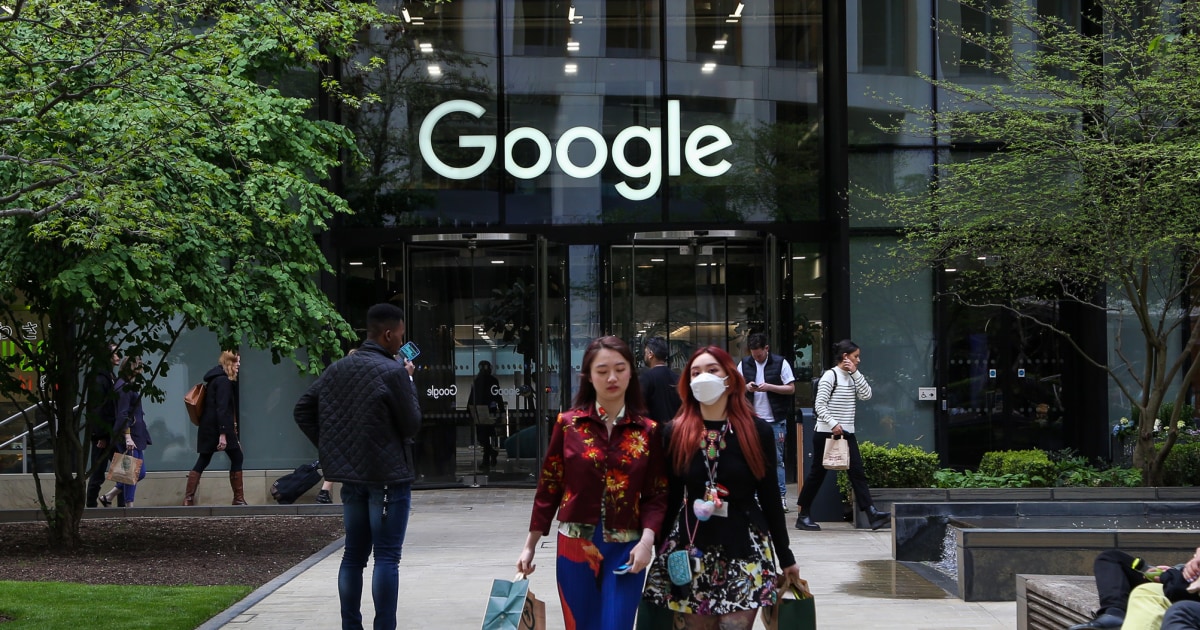TikTok, Twitter, Facebook, Google and Amazon face mounting pressure from European authorities as London and Brussels unveiled new rules on Tuesday for curb the power of digital companies.
They are among those on a list of the 19 largest online platforms and search engines that the European Union’s executive arm says must meet additional obligations to clean up illegal content and misinformation and keep users insurance under the Historic digital rules of the 27-nation bloc It will come into effect at the end of this year.
Meanwhile, the UK government unveiled a bill that would give regulators more power to protect consumers from online scams and fake reviews and boost digital competition.
The updates help cement Europe’s reputation as a world leader in efforts to control the power of social media companies and other digital platforms.
TikTok will allow European Commission officials to «stress test» its systems to ensure they comply with the Digital Services Act, commissioner Thierry Breton said at an online briefing.
He pitched the idea to TikTok CEO Shou Zi Chew. when they met in Brussels earlier this year.
“I’m happy they’ve gotten back to us saying they’re interested,” Breton said, but added that he’s waiting for Chew to provide a date. TikTok did not respond to a request for comment.
Twitter had previously agreed to a stress test, and Breton said he and his team will travel to company headquarters in San Francisco in late June for the voluntary simulated exercise. Breton did not detail what the test would entail.
Starting August 25, the largest online platforms will need to give European users more control by making it easier to report illegal content as hate speech and by providing more information about why their systems recommend certain content.
There are guardrails for AI-generated content like deepfake videos and synthetic imagesthat will need to be clearly labeled when they appear in search results, Breton said.
Platforms will have to «completely redesign» their systems to ensure a high level of privacy and safety for children, including verifying the age of users, Breton said.
Big tech companies will also have to revamp their systems to «prevent algorithmic amplification of misinformation,» he said, saying he was particularly concerned about Facebook’s content moderation systems ahead of September elections in Slovakia.
«Now that Facebook has been designated as a very large online platform, Meta needs to carefully investigate its system and fix it where necessary as soon as possible,» he said.
Facebook’s parent company said it supports the new EU Digital Services Law.
“We are already taking important steps to ensure we comply with DSA requirements, including expanding and evolving our existing transparency tools and reporting systems,” Meta said.
Violations can lead to fines of up to 6% of a company’s annual global revenue (which runs into billions of dollars) or even a ban from operating in the EU.
The European Commission’s list of very large online platforms is limited to those with at least 45 million users in Europe, which includes Google’s search, playback, maps, shopping and YouTube services; Amazon marketplace; the Apple app store; Microsoft’s Bing and LinkedIn; Meta’s Facebook and Instagram; as well as Pinterest, Snapchat, TikTok, Twitter, Wikipedia, Booking.com, China’s Alibaba Aliexpress and the German e-commerce company Zalando.
Breton said more platforms could be added, and the commission is looking at «four or five» more that it will decide on in the coming weeks.
In Britain, the government’s Digital Markets, Competition and Consumers Bill proposed on Tuesday would give watchdogs more muscle to counter the dominance of tech companies, backed by the threat of fines of up to 10%. of your annual income.
Under the proposals, online platforms and search engines could be required to give rivals access to their data or be more transparent about how their app stores and marketplaces work.
The rules would make it illegal to hire someone to write a fake review or allow consumer reviews to be posted online «without taking reasonable steps» to verify they are genuine. They would also make it easier for consumers to opt out of online subscriptions.
The new rules, which still need to go through the legislative process and gain parliamentary approval, would apply only to companies with 25 million pounds ($31 billion) in global revenue or 1 billion pounds in UK revenue.

